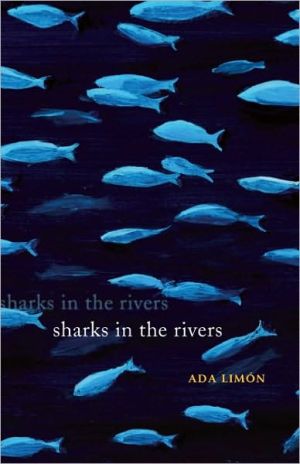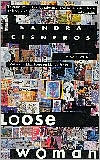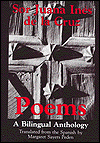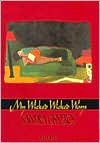Sharks in the Rivers
The speaker in this extraordinary collection finds herself multiply dislocated: from her childhood in California, from her family’s roots in Mexico, from a dying parent, from her prior self. The world is always in motion — both toward and away from us—and it is also full of risk: from sharks unexpectedly lurking beneath estuarial rivers to the dangers of New York City, where, as Limón reminds us, even rats find themselves trapped by the garbage cans they’ve crawled into. In such a world, how...
Search in google:
The speaker in this extraordinary collection finds herself multiply dislocated: from her childhood in California, from her family’s roots in Mexico, from a dying parent, from her prior self. The world is always in motion — both toward and away from us—and it is also full of risk: from sharks unexpectedly lurking beneath estuarial rivers to the dangers of New York City, where, as Limón reminds us, even rats find themselves trapped by the garbage cans they’ve crawled into. In such a world, how should one proceed? Throughout Sharks in the Rivers, Limón suggests that we must cleave to the world as it “keep[s] opening before us,” for, if we pay attention, we can be one with its complex, ephemeral, and beautiful strangeness. Loss is perpetual, and each person’s mouth “is the same / mouth as everyone’s, all trying to say the same thing.” For Limón, it’s the saying—individual and collective — that transforms each of us into “a wound overcome by wonder,” that allows “the wind itself” to be our “own wild whisper.”Publishers WeeklyVigor, intensity, and informality mark the volatile free verse of this third collection from Limón (this big fake world), who pays homage at once to the dangers in this world (and in the lives of her sometimes ill-fated acquaintances) and to the desires that drive us on. One page hopes ""to be utterly lost","" "to hide underneath Highway Twelve/ and listen to the automobiles go by"" another implores, " "Sumptuous mountain, midnight milkweed,/ come to the valley of neon and no-crying." Her sensibility draws her to wild landscapes of the West: California's Russian River, backcountry Washington State, and the Rio Grande valley, where Aztec myths seem at home in our day: of interest to some for the poet's Latino heritage, these sinewy odes, sexy glimpses ("my invisible birds are still intact") and visionary reminiscences should also appeal to readers who treasure the work of Jack Gilbert. Her lyric sequences use their power to scare, but also to reassure: "Don't worry," Limón declares, "I don't believe that hummingbirds are in love with me,/ no gods are ever in love with us." She has, the poems say, been in love herself--with people, mountains, and with day and with the night in which "The swinging sky patterns/ itself after the inside of a giant quiver." (Oct.)
\ Publishers WeeklyVigor, intensity, and informality mark the volatile free verse of this third collection from Limón (this big fake world), who pays homage at once to the dangers in this world (and in the lives of her sometimes ill-fated acquaintances) and to the desires that drive us on. One page hopes ""to be utterly lost","" "to hide underneath Highway Twelve/ and listen to the automobiles go by"" another implores, " "Sumptuous mountain, midnight milkweed,/ come to the valley of neon and no-crying." Her sensibility draws her to wild landscapes of the West: California's Russian River, backcountry Washington State, and the Rio Grande valley, where Aztec myths seem at home in our day: of interest to some for the poet's Latino heritage, these sinewy odes, sexy glimpses ("my invisible birds are still intact") and visionary reminiscences should also appeal to readers who treasure the work of Jack Gilbert. Her lyric sequences use their power to scare, but also to reassure: "Don't worry," Limón declares, "I don't believe that hummingbirds are in love with me,/ no gods are ever in love with us." She has, the poems say, been in love herself--with people, mountains, and with day and with the night in which "The swinging sky patterns/ itself after the inside of a giant quiver." (Oct.)\ \ \ \ \ Library Journal"This is the way/ the world runs through us, its instruments of moon—/ water and hangnails of hope." In her third collection (after Lucky Wreck and This Big Fake World), Limón does let the world run through us, transporting us among landscapes, both real and imagined: urban/rural, East/West, and modern/mythological. Limón aptly uses repetition in language and syntax to strengthen her lines, and her images, which range from birds to fish, both carry and confound the reader. Think of M.C. Escher's print in which fish rise from water to become birds. In Limón's world, there is transcendence in change and a way "to affirm our existence." A centerpiece of the book is a series of 15 poems in which the author visits the myth of Huitzilopochtli, an Aztec god whose father was a ball of feathers—and the hummingbird who "taught her to weave/ …that weaving saved her life." VERDICT Both complex and wonder filled, Limón's poems remind readers that "Everything is off-limits./ Everything is unreal./ Everything is lament and let go." Readers of contemporary poetry will delight in them.—Karla Huston, Appleton, WI\ \







